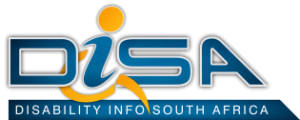Books & Reading
Contents: To jump to the topic you would like, click on the links below
Introduction
Reading is a wonderful hobby and very inexpensive. It provides so many benefits and is a hobby that can still be enjoyed despite having a disability. With the help of the many assistive devices available, books & reading can still be enjoyed, even with a severe disability.
The act of reading improves your ability to absorb and comprehend written information, helping you in virtually any career path. There are very few jobs today that don't incorporate written information or instructions, and the more you read, the easier it is for you to absorb that information and execute your job better. Reading can be surprisingly social, too, with book clubs turning books into a true social event.
Books can be acquired for practically nothing at your local library or used bookstore and can be read in small pieces when you have a five minute gap or in large chunks when you have a lazy afternoon. Most books are also incredibly portable & can provide you with many hours of entertainment.
Types of Books
There are a wide variety of books out there for almost anything you can imagine, including ones that supply knowledge or enlightenment and can sometimes be inspirational & educational. Whatever it is that you enjoy, there's a book of interest for you.
Some organizations such as QASA have a number of very good quality publications which:
- introduces the reader to all disabilities and can be used as an effective sensitization tool.
- Have informative articles, product comparisons and news relevant to wheelchair users
- Explains the laws and policies that are relevant to people living with disabilities. It is very simple and explains the policies and rights of people living disabilities in terms that are easy to understand.
- This publication addresses the issue of sexuality with sensitivity and highlights the various options available to people who have suffered spinal-cord injuries.
- Rolling Inspiration
- Sawubona Disability
- Know Your Rights
- Sexuality
There a also many inspirational people out, who are mobility impaired and have written books on how they have dealt with their disabilities. An example of this, are the books by Christopher Reeve, such as Still Me & Nothing is impossible.
Many people with physical disabilities find it difficult or impossible to perform tasks like turning pages, due to their disability. With the aid of assistive devices, these tasks become possible so that the hobby of reading is possible, no matter what your disability.
Assistive Devices
When it comes to Assistive Devices to assist with reading, there are a wide variety, depending on your needs and disabilities. They include:
- Hand-Strapped Typing Aid. This can double as a Page Turner.
Hand-strapped typing aids are pencil sized sticks with rubber tips that strap around the palm area of the user's hand (right, left, or both). These provide the user with a rigid point option they can control with the gross motor movement of their hands and arms. These typing aids are primarily used by people who's disability has effected the fine motor control of their fingers, causing an inability to accurately target or press keys on a standard keyboard or to turn pages. - Mouth Stick - This can also double as a Page Turner.
Mouth sticks are a similar concept to hand-strapped typing aids. They provide the user with a rigid pointing device that, due to the user's disability, is easier for the user to control than their finger. A mouth stick is roughly 8"-12" long and attaches to a retainer-like bite plate that the user holds in his or her mouth to operate the stick. To effectively use a mouth stick, the user must have good head control. A typical user typically has little or no arm control due to his/her disability. - Head Pointer - This can also double as a Page Turner.
A head pointer is similar to a mouth stick except instead of holding the device in one's mouth, it is strapped to the user's head. Control with a head pointer is dependent on the tightness of the strap, thus good head pointer control usually correlates with discomfort. Head pointers also have a degree of dependency because most people who use head pointers rely on someone else to put it on. Those who have used both find greater control and comfort with a mouth stick. A typical head pointer user is similar to a mouth stick user with the added difficulty of unreliable mouth control, a need to breath. - Book Holder, to save tired arms, and keep the book open at the right page. If you are bedridden, you may find it easier to read with the assistance of a book holder/stand which holds the book or magazine overhead at a convenient angle, or prism glasses, which enable you to watch TV or read without straining your neck.
- Automatic Page Turners for help with reading physical copies of books or magazines


